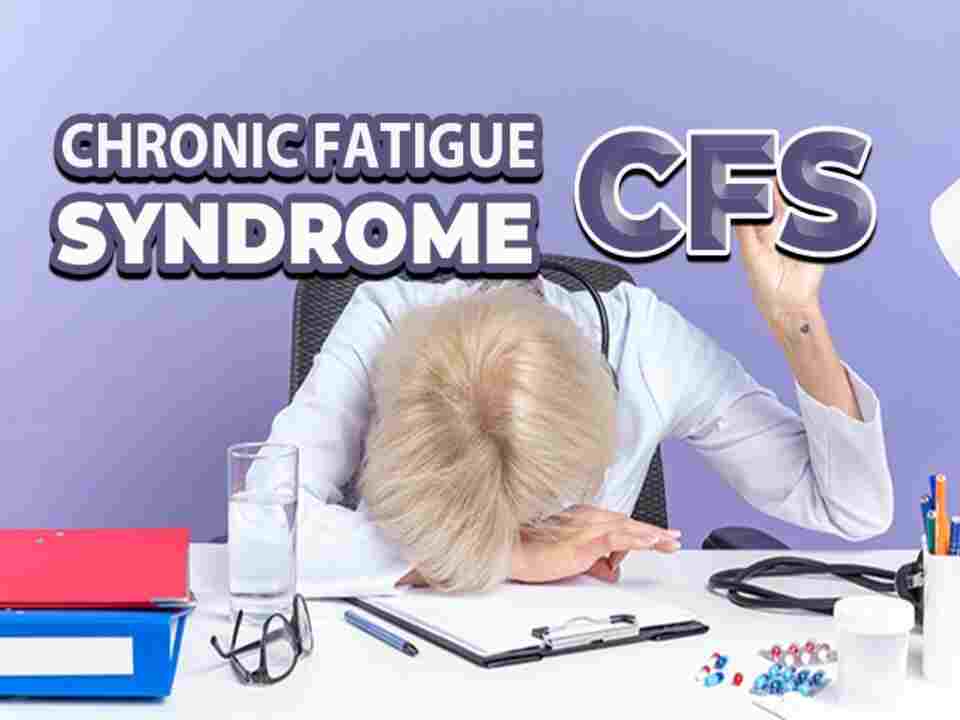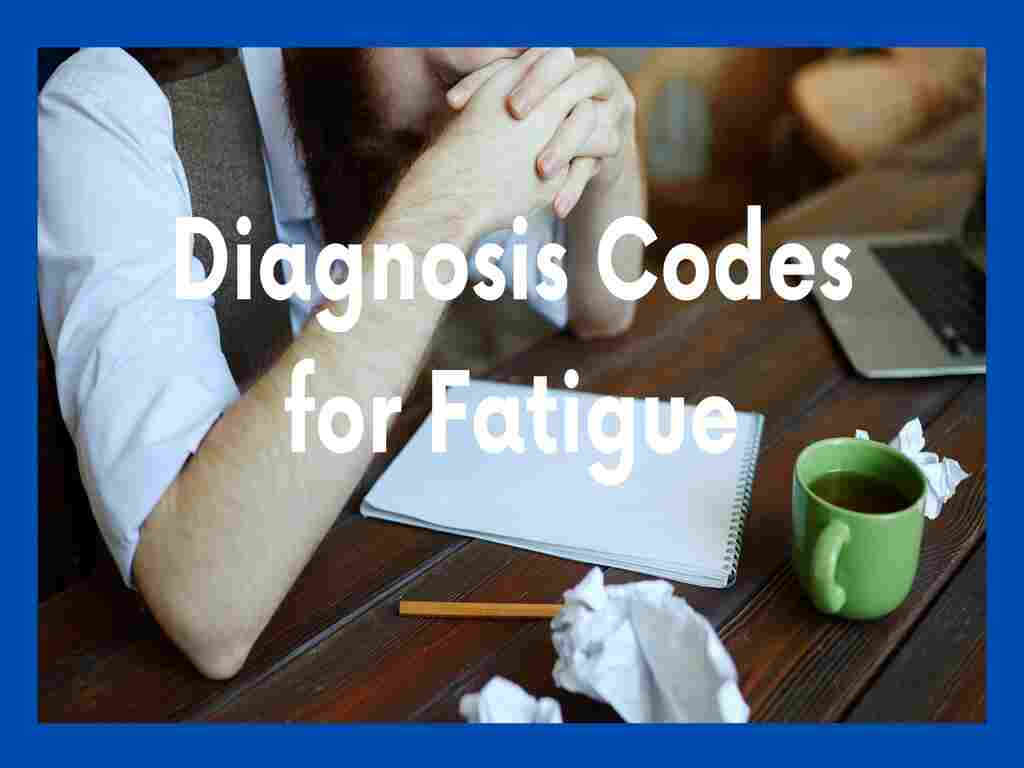Effective FATIGUE ICD 10 Codes for Empathetic Diagnosis
The Problem of Fatigue in Healthcare We know how much it changes the life and happiness of a patient. This is why we have created this resource to help you better understand the FATIGUE ICD 10 code. This will allow you to write careful and precise reports.
In this post, we will explore various fatigue types and the complexity of how it manifests. Next, let us take a look at in what ways ICD 10 codes become most essential while finalizing the diagnosis and managing fatigue. This way, these complicated issues can be properly documented and shared by healthcare workers.
Key Takeaways
- Full appreciation for fatigue and its detrimental effect on the patient experience
- FATIGUE ICD 10 Code References to Assist in the Accurate Diagnosis and Reporting of These Fatigue-Related Conditions
- Differentiating fatigue from malaise and the applicable FATIGUE ICD 10 codes
- Distinguishing between daytime and generalized fatigue and accurately providing the appropriate coding
- Best ways to manage chronic fatigue syndrome Exploring FATIGUE ICD 10 codes for CFS
Yes, Understanding Fatigue and What Impact Does it Have?
Fatigue means more than simply being tired. You are drained physically and mentally as much as emotionally. This can interfere with daily life, work, and enjoyment. To support people with fatigue, it is important for doctors to fully understand levels of tiredness.
What Is Fatigue: The Whole Approach
Fatigue, tired early, or unable to do more of what you know CAN DO. This might be because they work too hard; are stressed out, are not at ease with themselves or some people may have health issues. Physicians need to look at fatigue as a complete issue to be able and assist their patients in getting better.
Fatigue is Complex
What I know for sure is that fatigue touches on all aspects of the physical, mental, and emotional body. It can make you feel lethargic, lends a hand to the brain fog effect and it also very much plays into your mood. All these sides need to be seen by doctors to take care of patients the right way.
| Aspects of Fatigue | Symptoms |
|---|---|
| Physical | Muscle weakness, decreased stamina, overall exhaustion |
| Mental | Impaired concentration, decision-making, and memory |
| Emotional | Mood disturbances, irritability, diminished motivation |
Further elaboration for doctors to improve治 In turn, they can give better treatments to help the patient feel their best. There are six types of fatigue, so recognizing and treating them requires a bit more nuanced approach.
FATIGUE ICD 10 Codes for the Diagnosis of Fatigue
Importance of FATIGUE ICD 10 Codes in the Diagnosis and Management of Fatigue They create a common language for healthcare workers to use.
This means easier billing, documenting, and data retrieval. Properly using a FATIGUE ICD 10 code for fatigue results in better care of the patient.
The choice of FATIGUE ICD 10 codes for fatigue is imperative. These are codes that connect clinical notes, diagnoses, and the paperwork system of healthcare.
Doctors find the right care and treatment for patients by using the appropriate FATIGUE ICD 10 diagnosis code to diagnose fatigue.
In addition, FATIGUE ICD 10 codes for fatigue are also important for data collection and analysis. They assist in collecting data on fatigue conditions. This data can help detect trends and provide better data for research and treatment.
In conclusion, FATIGUE ICD 10 codes for fatigue and ICD 10 code diagnosis of fatigue is important for identification as well as treatment. They assist doctors in documenting properly, getting paid appropriately, and moving medical knowledge forward.

How to Find the Right FATIGUE ICD 10 Codes
Correctly coding fatigue-related conditions is important for both good patient care and fair payment. To correctly select the correct fatigue code, healthcare workers need to be proficient in using the FATIGUE ICD 10 system. Here is the main and extra fatigue code guide. It is designed to assist you enhance your notes and records.
Primary Fatigue Codes
FATIGUE ICD 10 fatigue code refers to the primary diagnosis of actual fatigue. They are:
- R53. 0 – Fatigue related to Neoplastic (malignant)
- R53.1 – Weakness
- R53. 75 – Other malaise and fatigue
- R53. 82 — chronic fatigue, fa
- R53.83 – Other fatigue
Secondary Fatigue Codes
In addition, there are FATIGUE ICD 10 codes linked to fatigue. These could be conditions as such:
- G93. 3 – Postinfectious fatigue syndromes
- I69.- -Sequelae of cerebrovascular disease
- M54.5 – Low back pain
- F32. The patient received a principal diagnosis of major depressive disorder, single episode; moderate.
- F33. Axis I: 1) Major depressive disorder, recurrent, moderate
Doctors who are aware of these fatigue codes, including both primary and supplementary categories, can better document their patient’s condition and more accurately code it. This results in a higher level of care and more just payments.

| Code | Description | Specificity |
|---|---|---|
| R53.0 | Neoplastic (malignant) related fatigue | Highly specific to fatigue related to cancer or other malignancies |
| R53.1 | Weaknesses | Broad code for general feelings of weakness and tiredness |
| R53.81 | Other malaise and fatigue | Captures a wide range of fatigue-related symptoms not classified elsewhere |
| R53.82 | Chronic fatigue, unspecified | Specific to chronic fatigue that does not meet the criteria for chronic fatigue syndrome |
| R53.83 | Other fatigue | Covers other types of fatigue not specified in the previous codes |
Acquiring knowledge of different fatigue ICD 10 codes helps us in properly documenting the above-said case scenarios for our patients. This results in more effective care for patients and equitable payment.
Fatigue ICD 10
FATIGUE ICD 10 code R53. 81 is the magic code for evaluating and coding fatigue. Again, it can be used when the fatigue is very subjective or if an objective cause of not area (# before pituitary) fatigue is mentioned in medical records Thus, healthcare providers must know this code to treat and report accurately.
FATIGUE ICD 10 code R53. 81 for nonresponsive fatigue It allows clinicians to record fatigue as a symptom, even if the underlying etiology is unknown. This code is great for when your fatigue could be from anything or mechanical tests have returned a clear answer.
Using the R53. 81 code is non-empty, complex cases or cases where a test has cause not been found yet. It improves the chances that we will pick up on what patients like this experience as fatigue. This makes it simpler to design care and follow-up.
FATIGUE ICD 10 Code
| ICD-10 Code | Description |
|---|---|
| R53.81 | Unspecified fatigue |

Using the FATIGUE ICD 10 code R53. An 81 for unknown fatigue attests to that attention to detail and taking care of the patient in its entirety. It allows us to identify and treat fatigue even though we don’t know what is driving it.
Chronic Fatigue Syndrome: Decoding the FATIGUE ICD 10 Codes
It is a multifaceted disease and proper diagnosis in coding of Chronic Fatigue Syndrome (CFS) must be done carefully.
FATIGUE ICD 10 codes for CFS to assist healthcare providers in documenting and managing their conditions. Knowing these codes is a crucial aspect of providing proper care to your patient and reimbursement.
The primary FATIGUE ICD 10 code for Chronic Fatigue Syndrome is G93. 3. This is coded to code other disorders of the brain, which isn’t a code that we even regularly see as hospitalists.
The code goes on to cover symptoms such as continuing tiredness, the feeling of having a foggy head, and acute exhaustion following minimal efforts.
FATIGUE ICD 10 Code
| ICD-10 Code | Description |
|---|---|
| G93.3 | Chronic fatigue syndrome |
| R53.82 | Chronic fatigue, unspecified |
| R53.0 | Neoplastic (associated) fatigue |
Other FATIGUE ICD 10 codes are available for healthcare providers to record symptoms and conditions that may be associated with CFS. Codes like R53. 82.51 Chronic fatigue, unspecified R53 The specifics e.g., 0 for “Neoplastic (associated) fatigue” add texture to the disorder. They assist in treatment planning.
Healthcare workers must be aware of the chronic fatigue ICD 10 and for that matter, even as far as fatigue syndrome ICD 10 codes, etc. This facilitates the validation of records and care improvement for Patients’ overall benefits to obtain the correct payment for managing chronic fatigue syndrome.

Malaise and Fatigue-Coding in ICD 10
Clinical distinction between malaise and fatigue is important for diagnostic and treatment purposes in the health care unit. While IC has its FATIGUE ICD 10 code and CPPS is a separate diagnosis, many of the symptoms overlap between these 2 conditions. After all, good patient care hinges on being able to interpret the code now, doesn’t it?
Malaise FATIGUE ICD 10 Codes
Malaise is discomfort or unease. This may be a result of many conditions. Malaise — The FATIGUE ICD 10 code for malaise is R53. 81. Feel free to expand the following code for using over a variety of symptoms, like feeling weak and very tired (in both mind + body).
FATIGUE ICD 10 Codes
Fatigue is the feeling of being very tired. Fatigue FATIGUE ICD 10 Code: R53 83. This code is useful for finding the reason behind a person getting tired and then treating them accordingly.
Just understanding the FATIGUE ICD 10 code for malaise and fatigue can aid us in documenting patients’ status appropriately. This results in improved treatment and patient outcomes.
“Accurate coding is the foundation of quality healthcare delivery. Understanding the subtle differences between malaise and fatigue empowers us to provide the most appropriate care for our patients.”
Coding Daytime Fatigue
Daytime sleepiness is the one that most affects daily life and well-being. We must be able to recognize and chart these conditions as healthcare providers. We accomplished this by pulling the FATIGUE ICD 10 code.
Daytime fatigue (Excessive Daytime Sleepiness or Hypersomnia) means you feel sleepy, even after sleeping. This can make it difficult to apply yourself, focus, and think effectively by day.
That daytime chronic fatigue is FATIGUE ICD 10 code G47. Nonorganic hypersomnia, unspecified10
This code is adjusted only when the patient falls asleep during the daytime or there are issues with breaking sleep.
Fatigue during the day?
These are some instances where we may need additional FATIGUE ICD 10 codes to determine what is causing the fatigue.
“Early recognition and proper coding of daytime fatigue are key to giving the right treatment and improving life quality for those affected.”
That is why we are vigilant in our skilled assessment and ensure the correct ICD 10 code for daytime fatigue, so that you receive proper care to address this chronic illness.
General Fatigue: Mapped Coding Techniques
It can be extremely difficult to manage the kind of general fatigue that I had, but there are ways. FATIGUE ICD 10 reminds clinicians to get the diagnoses right. These codes can be used to classify and record various forms of Fatigue.
Recognizing A Common Type Of Fatigue
Generalized fatigue is the feeling of tiredness that persists. This could be from stress, it could also derive from inadequacies in your health. This is a syndrome where doctors look at symptoms and past health but also stress levels.
Examples of FATIGUE ICD 10 Codes for Generalized Fatigue
In fact, for generalized fatigue, there are many codes in the FATIGUE ICD 10 system. Some important ones are:
- R53.81 – Generalized fatigue
- R53. Chronic fatigue, unspecified 82
- F48. 9 — Nonpsychotic mental disorder, NOS
- G93. 3 – Post-viral fatigue syndrome
These codes will enable doctors to note the fatigue in their patients properly. This ensures that the patient receives appropriate treatment, claims for it paid, and contributes medical knowledge based on chronic fatigue syndrome.
If you approach how to code fatigue in ICD 10 with a full strategy Both medical and acting treatments possible FATIGUE ICD 10 codes help indicate diagnoses The result: Improved patient care and outcomes.
CFS: Who Pays What (FATIGUE ICD 10 codes, etc.)
Chronic fatigue syndrome (CFS), also referred to as myalgic encephalomyelitis (ME)/encephalopathy, is a complex and debilitating disorder characterized by severe exhaustion with associated muscle pains such that the individual functionally mimics other diseases of exercising derived fatigues.
It typically is accompanied by a variety of other symptoms. Healthcare professionals will be able to better address this situation with the help of correct FATIGUE ICD 10 codes and practices.
However, here is the list of FATIGUE ICD 10 codes for chronic fatigue syndrome that you should know before diagnosing and treating this disease.
- The code G93 is the main one for chronic fatigue.
- This code contains “post-viral fatigue syndrome” and benign myalgic encephalomyelitis.
- Code R53. It is also used for chronic fatigue, unspecified (82)
Treating Fatigue Syndrome is an Expensive Business This could involve a number of tactics
Full Clinical Evaluation:
Doctors must take background details from the patient, carry out a physical exam, and monitor tests. The test is important for two major reasons:
To help eliminate other conditions and confirm the diagnosis.
Example:
Provide care to manage patient symptoms (e.g., pain, sleep difficulties, cognitive issues) and help keep them safe.
Lifestyle changes Sleep well, exercise regular food Well, and manage your stress levels can significantly help to control fatigue and will also improve general well-being.
This type of care is in collaboration with a team including physicians, counselors, and physical therapists to give the patient a complete treatment plan.
FATIGUE ICD 10 codes and best practices assist with this stuff for healthcare providers. They can accurately document, communicate well, and do better in the way they manage chronic fatigue for their patients.
FATIGUE ICD 10 Code
| ICD-10 Code | Description |
|---|---|
| G93.3 | Post-viral fatigue syndrome: Benign myalgic encephalomyelitis |
| R53.82 | Chronic fatigue, unspecified |
Another useful information for healthcare providers is to understand fatigue syndrome and its FATIGUE ICD 10 code. Diagnosis, treatment, and better patience. A wide range of people are involved in the care and support they receive working together as a team approach to supporting this challenging group.
Conclusion
This guide was meant to provide healthcare workers with an in-depth overview of the fatigue-related FATIGUE ICD 10 code. This position statement will assist them in understanding, diagnosing, and treating fatigue-related illnesses. Proper use of the FATIGUE ICD 10 code allows for improved patient care.
We have discussed the primary and secondary codes, malaise vs fatigue, and the various types of fatigue. This ensures healthcare can confidently be drawn from the FATIGUE ICD 10 system. This allows them to develop a better treatment plan and ultimately care for their patients.
The broad adoption of using FATIGUE ICD 10 codes for fatigue is a significant forward step in healthcare. It is a critical component of bringing patients individualized care. With this knowledge, we will be able to provide the patients they service and further connect with those people. This guarantees that they are not taken lightly as well and caution is exercised in treating their exhaustion.
FAQ
FATIGUE ICD 10 Code for Fatigue
R53 is the primary FATIGUE ICD 10 code for fatigue. It hits it with “Malaise and fatigue.” Physical, mental, and emotional fatigue are all described in this code.
EH028: How Do I Code Chronic Fatigue In FATIGUE ICD 10?
Use the FATIGUE ICD 10 code G93. 3 for chronic fatigue. Code for each file—Postviral fatigue syndrome only. They are used in cases where the fatigue is long-standing and has a practical impact on daily life.
How do I code other fatigue, not during the infusion?
For other types of fatigue, apply the alternative FATIGUE ICD 10 code. For example: – R53. Fatigue due to cancer – R53. 0 1 for weakness – R53. Rest of malaise and fatigue – R53.81 Chronic Fatigue (etiology unknown) 82
FATIGUE ICD 10 Code for Malaise and fatigue
For malaise and fatigue, code R53 in the FATIGUE ICD 10 This code covers when the patient feels unwell and tired.
Is daytime fatigue a diagnosis, or is it a FATIGUE ICD 10 code?
Thus, we have a code for daytime fatigue which is R53. 83. Apply this code when your primary concern is daytime fatigue. This fatigue then impacts activities of daily living and quality of life.
FATIGUE ICD 10 code for generalized fatigue
For unspecified fatigue, code it as R53. 81. This is the code for “Other malaise and fatigue” When fatigue is general and not connected to a particular disease or activity
Is there a FATIGUE ICD 10 code for Chronic Fatigue Syndrome?
That would be the code for chronic fatigue syndrome (G93) 3. This code is for chronic fatigue syndrome associated with a viral/bacterial/infectious process (postviral fatigue syndromes). Best for fatigue that is present and interferes with daily life because it starts after a viral illness or other infection, use when persistent.
FATIGUE ICD 10 for indolence vs fatigue?
Malaise is not the same as fatigue Malaise —is a feeling of general discomfort; Fatigue —is extreme tiredness. In FATIGUE ICD 10, use R53. 0 for malaise and R53. 201 or other codes for fatigue in another format






